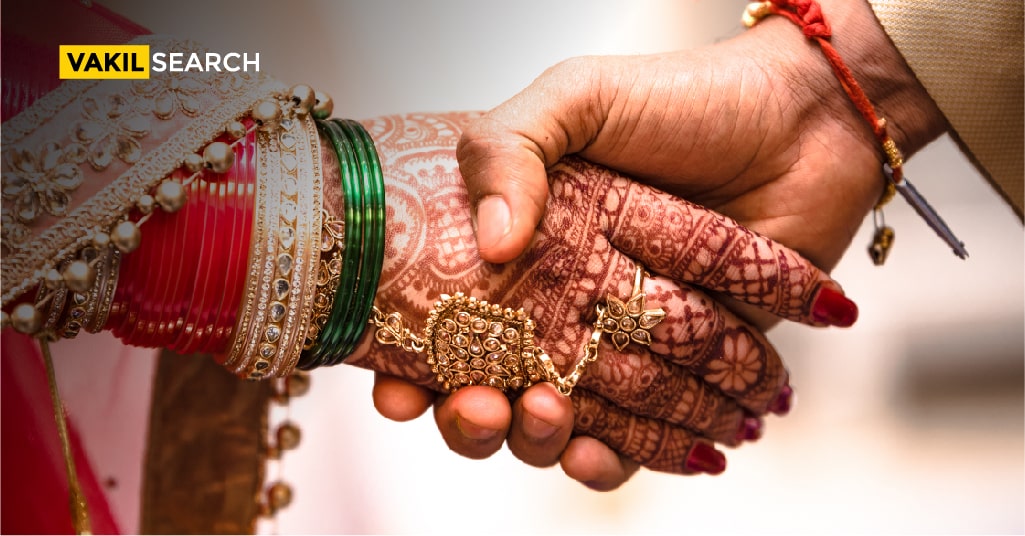The Special Marriage Act, 1954 provides a special form of marriage for the people of India and Indian nationals in foreign countries, irrespective of the caste they are from and religion they follow
In India, inter-caste and inter-religious marriage is often frowned upon. In some regions, it’s even considered taboo. Considering the rigid social hierarchies still observed in the country, people are expected to marry with their communities, castes, or religions, thereby maintaining the social hierarchy. Besides, each religion and caste has its own traditions and rituals, which are followed by a registration of the marriage and are accepted by the law. To safeguard the interest of people, who defy social practices and decide to marry someone outside their caste or religion, the Special Marriage Act of 1954 was created. This provides a special form of marriage for the people of India and Indian nationals in foreign countries, irrespective of the caste and religion they follow.
What Does the Act Comprise?
The purpose of the Special Marriage Act is to cater to inter-caste and inter-religion marriages, whereby the couple is not required to renounce his/her religion to get married. The online marriage certificate registration can also happen with them maintaining their religious identity.
The act includes marriages among Hindus, Muslims, Christians, Sikhs, Jains and Buddhists. And, it applies to every citizen in India and those living abroad, except in the state of Jammu & Kashmir. So, there is no separate court marriage for different faiths, rather it’s a uniform way of getting married irrespective of your religion.
Procedure Under the Special Marriage Act
Unlike traditional marriages, the Special Marriage Act doesn’t require any extravagance, show or pomp. All you require for a valid marriage under this Act is the consent of both parties to the marriage. If both the parties are ready to marry each other, that will do.
Following are some of the steps to register and marry under the Special Marriage Act.
You need to submit an application – https://services.india.gov.in/service/detail/application-for-special-marriage-declaration-by-bride-and-bridegroom in writing to the marriage officer of the district where either of the parties has resided for the past 30 days.
The marriage officer gives a 30 days notice period to accept objections on the marriage of the intended parties.
If there are no objections then the marriage officer is required to maintain a marriage notice book that contains all the details of the intended marriage. With no objections, the marriage can be solemnised after the passing of 30 days from the date on which such notice has been published at the office of the marriage officer.
The marriage officer enters all the details in the marriage notice book which should be signed by the parties and three witnesses.
In Case of Marriage Objection
- The objection is recorded in the marriage book with the signature of the person raising the objection’
- The marriage officer has the power to inquire about the validity of the objection
Conditions for the Marriage to Be Solemnised
- For a valid marriage, it is also required that the parties give their consent to the marriage in front of the marriage officer along with three witnesses
- The age of the bridegroom must be at least 21 and the bride must be at least 18 years of age at the time of marriage. This is the minimum age limit for a boy/girl to marry, respectively, under Indian law.
- Both the parties must be monogamous at the time of their marriage; i.e. they must be unmarried and should not have any living spouse at that time
- The parties should be mentally fit or sane in order to be able to decide for themselves whether they want to get married
- They should not be related to each other or fall under the degree of prohibited relationship. If that’s the case, it will be grounds for dissolving the marriage. However, if the custom of any one of the parties allows for the marriage under prohibited relation such marriage may be solemnised.
Prohibited Degrees in Marriage
The prohibited relationship in Schedule I and Schedule II of the Act include relationships with cousins, both paternal and maternal. under different religions are considered differently.
Under Hindu Law
Under the Hindu Marriage act, marriage with second cousins is prohibited as they come under sapindas. However, the special marriage act doesn’t prohibit such a relationship.
Under Muslim Law
Further, under personal Muslim law, marriage between cousins both paternal and maternal is allowed.
Under Christian Law
Under Christian personal Law, marriage with cousins is allowed if the Church permits so.

